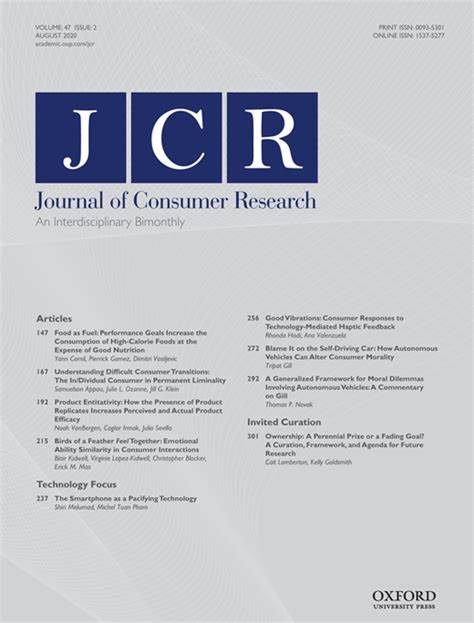社会媒体影响者如何影响消费者群体:嵌入性视角
IF 6.4
1区 管理学
Q1 BUSINESS
引用次数: 6
摘要
研究记录了消费者集体中嵌入式企业家的出现。随着社交媒体使普通消费者成为社交媒体影响者(SMI),这一现象越来越普遍,SMI是嵌入式企业家的一种独特形式。虽然研究考虑了嵌入性对嵌入企业家本身的影响,但我们缺乏对嵌入企业家对消费者集体影响的深入了解。为了解决这一差距,我们对YouTube美容社区进行了一项纵向、定性的研究,在那里SMI无处不在。在互动主义角色理论的指导下,我们记录了社区内SMI的出现所引发的波兰“双重运动”。我们证明,社区内的经济最初是高度嵌入的,受到与既定社会角色相关的行为规范的约束。SMI试图剥离经济,造成了功能失调的角色动态,降低了非创业社区成员参与的好处。这引发了一场反运动,SMI及其追随者试图通过角色谈判策略重新嵌入SMI的经济活动。我们的分析揭示了嵌入式创业对消费者集体非创业成员的负面影响,强调了社交媒体平台在嵌入式谈判中的作用,并推动了围绕消费者集体的演变和SMI影响的更广泛对话。本文章由计算机程序翻译,如有差异,请以英文原文为准。
How Social Media Influencers Impact Consumer Collectives: An Embeddedness Perspective
Research has documented the emergence of embedded entrepreneurs within consumer collectives. This phenomenon is increasingly prevalent as social media enables ordinary consumers to become social media influencers (SMIs), a distinct form of embedded entrepreneur. Whilst research has considered the implications of embeddedness for embedded entrepreneurs themselves, we lack insight into embedded entrepreneurship’s impact on consumer collectives. To address this gap, we draw from a longitudinal, qualitative study of the YouTube beauty community, where SMIs are pervasive. Informed by interactionist role theory, we document the Polanyian ‘double movement’ prompted by the emergence of SMIs within the community. We demonstrate that the economy within the community was initially highly embedded, constrained by behavioural norms linked to established social roles. SMIs’ attempts to disembed the economy created dysfunctional role dynamics that reduced the benefits of participation for non-entrepreneurial community members. This prompted a countermovement whereby SMIs and their followers attempted to re-embed SMIs’ economic activity via role negotiation strategies. Our analysis sheds new light on the negative implications of embedded entrepreneurship for non-entrepreneurial members of consumer collectives, highlights the role of social media platforms in negotiations of embeddedness, and advances wider conversations surrounding the evolution of consumer collectives and the impact of SMIs.
求助全文
通过发布文献求助,成功后即可免费获取论文全文。
去求助
来源期刊

Journal of Consumer Research
BUSINESS-
CiteScore
12.00
自引率
9.70%
发文量
53
期刊介绍:
Journal of Consumer Research, established in 1974, is a reputable journal that publishes high-quality empirical, theoretical, and methodological papers on a wide range of consumer research topics. The primary objective of JCR is to contribute to the advancement of understanding consumer behavior and the practice of consumer research.
To be considered for publication in JCR, a paper must make a significant contribution to the existing body of knowledge in consumer research. It should aim to build upon, deepen, or challenge previous studies in the field of consumption, while providing both conceptual and empirical evidence to support its findings.
JCR prioritizes multidisciplinary perspectives, encouraging contributions from various disciplines, methodological approaches, theoretical frameworks, and substantive problem areas. The journal aims to cater to a diverse readership base by welcoming articles derived from different orientations and paradigms.
Overall, JCR is a valuable platform for scholars and researchers to share their work and contribute to the advancement of consumer research.
 求助内容:
求助内容: 应助结果提醒方式:
应助结果提醒方式:


